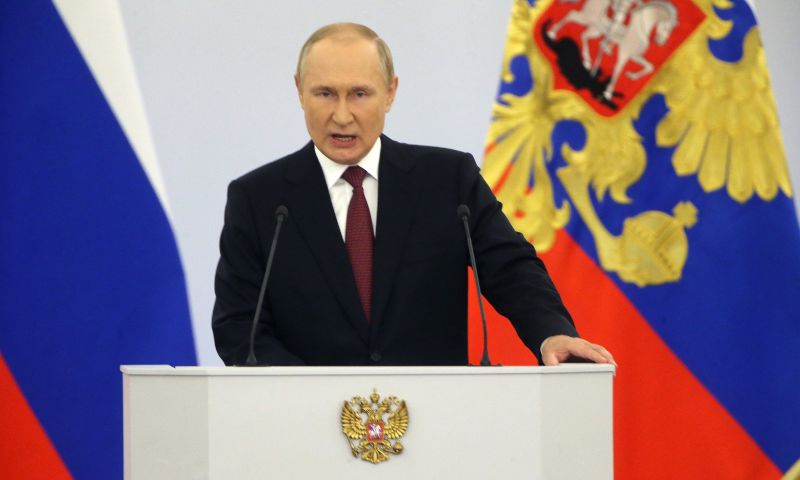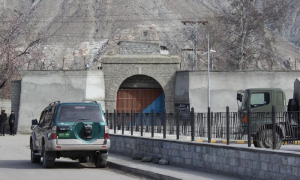LONDON, UK: Two years after Russia launched a full-scale invasion of Ukraine, the Kremlin has increased its reliance on a shadow fleet to circumvent restrictions on oil exports.
Experts believe a so-called ghost fleet of tankers whose ownership is unclear or lacks proper insurance has contributed to the slowdown, despite Western-imposed sanctions and oil price caps on global sales.
This has raised concerns about the myriad risks it poses, as well as concerns about the continued profits from the Russian war machine.
In a latest effort to crack down on the practice, the US Friday blacklisted as many as 14 Russian tankers belonging to Sovcomflot, the state-owned shipping company.
The US government said it has 45 days to unload oil and other cargo from the 14 ships before it takes effect.
The Kyiv School of Economics (KSE) defines a “ghost fleet” as a commercial vessel that is not owned by a member of the G7 alliance with the EU or does not have protection and indemnity (P&I) insurance.
Determining the true ownership of such vessels is often difficult because the origin of the parent company or intermediary is unclear.
The fleet has increased its presence since Russia imposed an oil embargo, capping the price of Russian crude oil and banning oil shipping services by sea to prevent Russia from financing its war with Ukraine.
In response, Moscow dramatically reduced its dependence on Western shipping services by buying or leasing shadow tankers and offering its own insurance services.
Lloyd’s List Intelligence had warned in December that “Russia’s industrial scale sanctions-evasion programme is growing more complicated and sophisticated”.
























